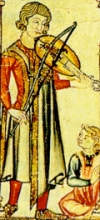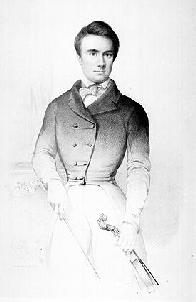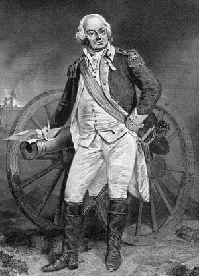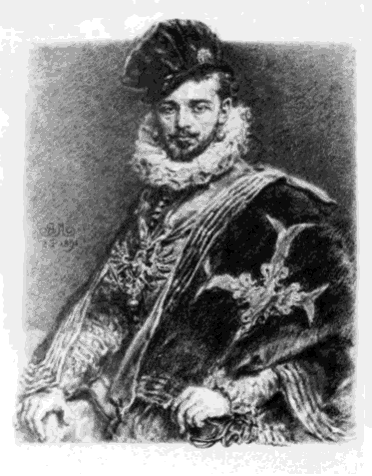Well the contest is closed, and I must confess I am a bit disappointed.Perhaps it was the subjects I chose, labour-history is something that is very important to me, and the questions about Poland is in honour of my wonderful wife, who is born in Szczecin. I also included a couple of interesting questions from my own country.
I also apologize for quite a poor summary of my quiz, but I am not feeling too well today after a chastening experience at my eye-doctor.Hope it is readable anyway...
So for the final results. Only three(!) people gave it a try, but jonatas deserves a special mention for some interesting input about the Divine Comedy.
So for the results:
YNCS 8.5
DexterJ 5
Gagliaudo 2
So YNCS scored a convincing victory,

YNCS!
So for the answers:
1.
What was the name of the group of agrarian communists who flourished in England in 1649-50 and were led by Gerrard Winstanley and William Everard?
The Diggers. Originally it was 20 poor men who assembled at St. George's Hill, Surrey, and began to cultivate the common land.
They held that the English Civil Wars had been fought against the king and the great landowners; now that Charles I had been executed, land should be made available for the very poor to cultivate.
The numbers of the Diggers more than doubled during 1649.Their activities started to alarm the Commonwealth government while also the hostility of local landowners, who were rival claimants to the common lands. The Diggers were harassed by legal actions and mob violence, and by the end of March 1650 their colony was dispersed. The Diggers themselves abjured the use of force. The Diggers also called themselves True Levelers, but their communism was denounced by the leaders of the Levelers.
2.Who is the only foreigner (non-Italian) in the Divine Comedy that speaks his own language?
The provencal trubadour
Arnaut Daniel (flourished between 1180 and 1210),
who Dante encounters in song XXVI of the purgatory where he is doing time for the sin of lust. When Dante adresses him he answer sin his native tongue:"Tan m' abellis vostre cortes deman,
Que jeu nom' puesc ni vueill a vos cobrire;
Jeu sui Arnaut, que plor e vai chantan;
Consiros vei la passada folor,
E vei jauzen lo jorn qu' esper denan.
Ara vus prec per aquella valor,
Que vus condus al som de la scalina,
Sovenga vus a temprar ma dolor.'
which is in translation:So pleases me your courteous demand,
I cannot and I will not hide me from you.
I am Arnaut, who weep and singing go;
Contrite I see the folly of the past,
And joyous see the hoped-for day before me.
Therefore do I implore you, by that power
Which guides you to the summit of the stairs,
Be mindful to assuage my suffering!
jonatas pointed out that also Nimrod, the builder of the tower of Babel, uses his language in Inferno, canto XXXI. While tthis "language" is invented by Dante, I think that that is a bit different, but I was still prepared to award a point to those who offered this response. And finally Plutus also uses his own language in Inferno, canto VII, but he is a demon and not a person.
3.Which famous 19th century violin virtuoso tried to set up an utopical society in Pennsylvania?
3. Ole Bornemann Bull. (1810-1880)
One of the most important culture personalities in Norway and an internationally acclaimed violinist, touring around in Europe and USA mostly playing his own compositions. He played a great role in putting Norway on the map and contributed greatly to the development of Norwegian cultural institutions while also serving as an ideal for future musicians like Edvard Grieg. His interest for politics and liking for America led him to try top establish an utopian colony, purchasing land in Pennsylvania. However while his idea may have been good, the execution was indeed poor, since the land was not good, the payments couldn't be kept up and top it, the immigrants arrived in autumn... The whole thing collapsed. The song "Oleana", named after the most famous community in the colony, by Ditmar Meidel is a satirical comment to this project.
Those who like romantic, virtuous violinmusic should check out some of his works.
4.What was the Padua circular of 1791?
The Padua circular was a letter written by Emperor Leopold von Habsburg of Austria, brother of Marie Antoinette, Even after the aborted flight of the royal family in June 1791 he continued his efforts to organize a coalition of French émigré nobles and other European powers that would invade France and put an end to the Revolution. In this letter, written shortly after the forced return of Louis and Marie Antoinette to Paris (which Leopold considered their "arrest"), he proposed an alliance of Austria, Prussia, Britain, Spain, Russia, and other forces against the French Revolution and set forth the principles for which this alliance would fightmost notably, the restoration of Louis to his full pre1789 powers.
5. Which city is called Poland's Paris?
5. Szczecin.
The city is called so because of its architectonical layout, inspired by Paris with its many roundelles and wide boulevards.
Lovely city, lots of interesting things for historian, lots of pretty girls...
 6.Who was called the Miners' Angel?
6. Mary Harris "Mother" Jones
6.Who was called the Miners' Angel?
6. Mary Harris "Mother" Jones (1830 - 1930)
, famous labour leader and organizer. She was born in Cork, Ireland, grew up in Ontario and d then came to the United States, where she worked as a dressmaker and a schoolteacher.She lost her husband and four children in a yellow fever epidemi in Memphis 1867 and fours years later , having moved to Chicago, everything in the great city fire.For the rest of her life she involved in labour activities, working as a "hellraiser" and contributing to advancing important social and political causes like abolishment of child labour, the organization of the United Mine Workers, and the founding of IWW (International Workers of the World). She was called "the miner's angel" by the coalminers and their families, in turn calling the workers "her boys" which made her adopting the nickname "Mother Jones".
She was famous for her charismatic way of speaking , ability to stagepublic events to get publicity for striking workers, and great physical courage.Opponents called her the most dangerous woman in America,and when learning she was denounced on the floor of the U.S. Senate as the grandmother of all agitators, she said she hoped to live long enough to be the great-grandmother of all agitators. she is today honored by the excellent political magazine that bears her name. It exists online - check it out!
7.Before the attack on Yugoslavia in 1999, when was the last time Norway attacked another country?
7.In
1788 a Norwegian force attacked Sweden as part of the war between Sweden and Russia, DenmarkNorway being Russia. Except for one minor battle with a numerically inferior Swedish force, not much happened in this campaign but many soldiers were later to die in the most typical way for a warrior of the time, of disease. This event is usually known in Norway as the "lingonberry" war, which is probably because the soldiers had so little to do that they had time to pick lingonberry or simply because of the red uniforms the Norwegian soldiers wore.
8. Which battle is this an eye-witness account of:
"The ground, whose habit it is to cover the dead, was in this place itself covered with dead, that offer different looks. There were heads, who had lost their natural owners, but also bodies that had lost their heads, on some bodies the intestines ran out - a horrible and gruesome sight; on others the head was crushed so that the brain ran out. There you saw the dead deprived of their blood and the living covered in that of others. There were arms shot of , whose fingers still moved as if they wanted to be part of the butchering again; on the other hand you saw men run that hadnt shed a drop of blood. There were chopped of thighs, heavier than before even if relieved from the weight of the body. There you saw were mutilated soldiers pleading for the thrust of mercy even if certain death was close; on the other hand you saw those pleading for mercy and clemency. All in all, it was nothing but a miserable, pitiful sight."
8
.The battle of Wittstock 1635 from the Thirty Years War where the numerically inferior Swedish army led by the brilliant marshall Johan Baner(1596-1641) defeated the Imperial army by using a cunning device. A good description of the battle and of Baner can be found here:
http://members.tripod.com/Strv102r/thirty_year_war1635.htm
9.What was the Limerick Soviet?
9.
In 1919 The trades council called a general strike & for the next two weeks ran the city of Limerick. No shop opened without their permission. Food prices were regulated to stop profiteering. Only transport authorised by the council was able to move through the city. Printing presses were taken over to explain their case & a daily bulletin was produced. The council even issued its own money. British soldiers were called on to desert their "imperialist capitalist government". It is said that a whole Scottish regiment was sent home for refusing to obey orders. Even if the Limerick Soviet lasted so shortly,it is nevertheless a memorable chapter in labour history.
A good book about the event is
Liam Cahill Forgotten Revolution: Limerick Soviet 1919
10. What was Shay's rebellion?
10 .
Uprising in Massachusetts in 1786 and 1787 caused by excessive land taxation, high legal costs, and economic depression following the American Revolution. Most of the insurgents were poor farmers threatened with loss of their property and imprisonment for debt, were headed by
Daniel Shays (1747-1825)
, a former captain in the American Revolution army. They demanded protective legislation, the abolition of the court of common pleas, and a radical reduction of taxes. The rebellion was eventually put down ,most of the participants were pardoned later in the year. Shays himself was condemned to death, but escaped to Vermont and was pardoned a year later. This rebellion was only one of many protests which forced the leaders and politicians of the young nation to realize that the Articles of Confederation were not an effective means of governing and helped pusing h the nation's leaders closer to formulating and ratifying the Constitution of the United States.
11. What was the Black Athena controversy about?
11.In 1987 the famous scholar
Martin Bernal put forward the thesis
that the golden age of ancient Greece and thus the West was based on African civilization which ignited a huge academical debate. If there is any interest for this I might return to it later. A lot of information can be found here:
http://www.worldagesarchive.com/Individual Web Pages/BlackAthena.html
12. Which European politician has written a history of poverty in Europe?
Bronislaw Geremek(1932-) , professor in history and former minister of Poland, today member of the European Parliament, wrote
"Geschichte der Armut: Elend und Barmherzigkeit in Europa" (History of poverty, misery and mercy in Europe). It is a truly great and very thorough work.
13. Which people were called "wild Scythians" by their elected king?
13.
The Poles. Henri of Valois(1551-1589)
,was the first king of Poland to be elected in free election by all the gentry in 1573. On the occasion of this first election, the so-called Henrician Articles were formulated. Unfortunately, the choice of the first king proved unfortunate. Henry arrived in Poland in January 1574, in the midst of a severe winter. He did not like Polish customs, while the Polish gentry was scandalized by the manners of Henri's court members. They called him "tyrant" while
the king called his new subjects "wild Schythians".Henri's infamous escape from Krakow in 1584 brought about a wave of anti-French pampleths, with even Jan Kochanowski participating.
14.What medical discovery was made by Gerhard Armauer Hansen?
14.
The lepra bacillus was discovered by the Norwegian scientist
Gerard Armauer Hansen(1841-1912). Leprosy is also called Hansen's disease. An interesting lepramuseum can be found in the Norwegian city of Bergen
15. Who wrote this song:
Long-haired preachers come out every night,
Try to tell you what's wrong and what's right;
But when asked how 'bout something to eat
They will answer with voices so sweet:
CHORUS:
You will eat, bye and bye,
In that glorious land above the sky;
Work and pray, live on hay,
You'll get pie in the sky when you die.
The starvation army they play,
They sing and they clap and they pray
'Till they get all your coin on the drum
Then they'll tell you when you're on the bum:
Holy Rollers and jumpers come out,
They holler, they jump and they shout.
Give your money to Jesus they say,
He will cure all diseases today.
If you fight hard for children and wife --
Try to get something good in this life --
You're a sinner and bad man, they tell,
When you die you will sure go to hell.
Workingmen of all countries, unite,
Side by side we for freedom will fight;
When the world and its wealth we have gained
To the grafters we'll sing this refrain:
FINAL CHORUS:
You will eat, bye and bye,
When you've learned how to cook and to fry.
Chop some wood, 'twill do you good,
And you'll eat in the sweet bye and bye.
15. Joe Hill(1879 - 1915)
, famous American labour activist and songwriter.He was originally born in Gävle and bore the name Joel Emanuel Hägglund. His songs, often using already well-known melodies became very popular. He was eventually framed for a murder he didn't commit during a political campaign in Utah and was executed despite appeals from Woodrow Wilson and the Swedish government. The song in the quiz is one of his most famous;
The Preacher and the Slave.
I intend to return to Joe Hill later, this forum has tons of well-written, high-quality articles but could need some on labour history...
So congratulations with a nice effort ,
YNCS 
, it's all yours!




 YNCS!
YNCS!







 , it's all yours!
, it's all yours!
 But I'm looking forward to the answers...
But I'm looking forward to the answers... 
 .... but that's no better than googling, so I'll pass
.... but that's no better than googling, so I'll pass
 Thanks for the flowers, I am very glad you liked it, and that makes it worthwhile indeed! It is also true that this is a good way of learning new and interesting facts, for instance I look forward to the answers of the one YNCS is running now, since I only know the answers to about half of them.
Thanks for the flowers, I am very glad you liked it, and that makes it worthwhile indeed! It is also true that this is a good way of learning new and interesting facts, for instance I look forward to the answers of the one YNCS is running now, since I only know the answers to about half of them.

